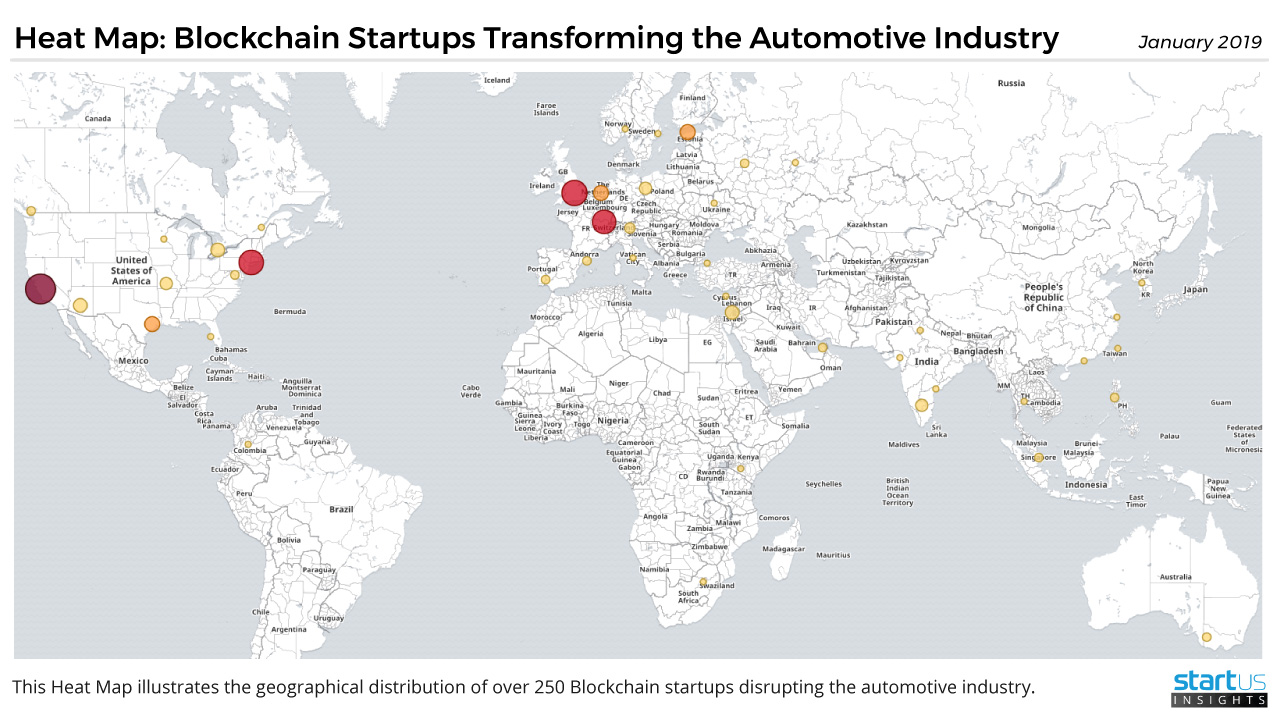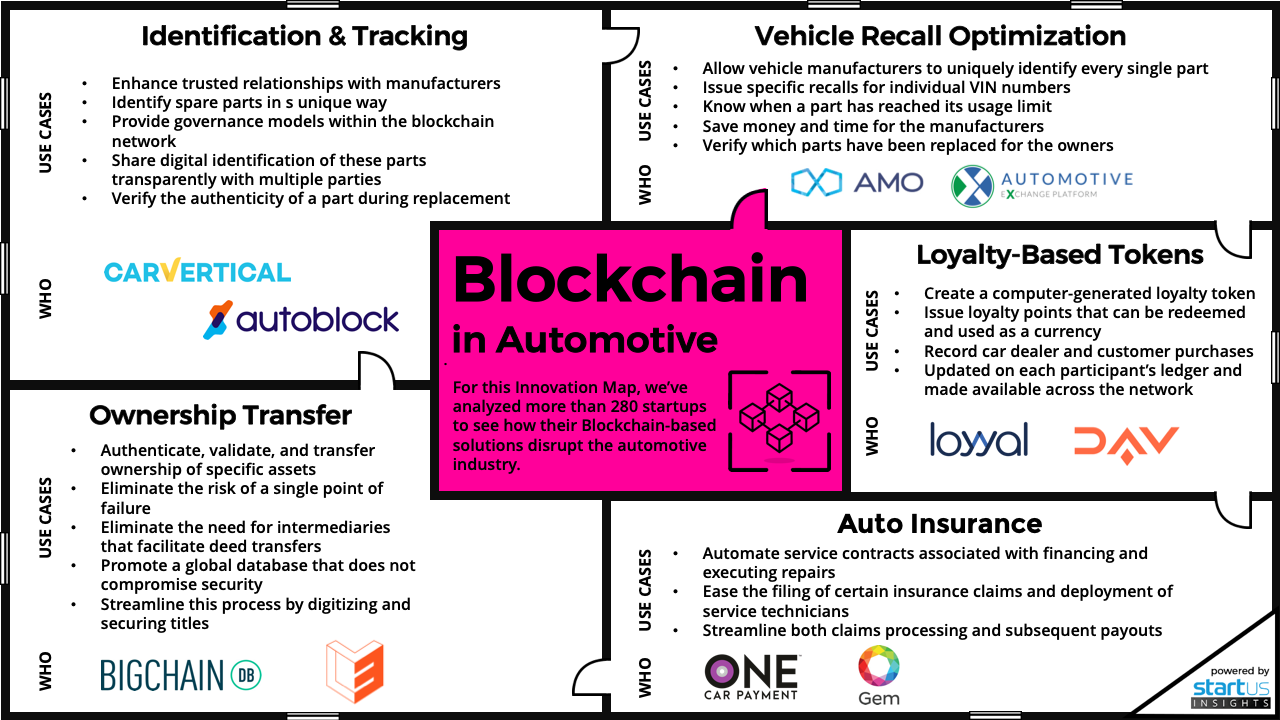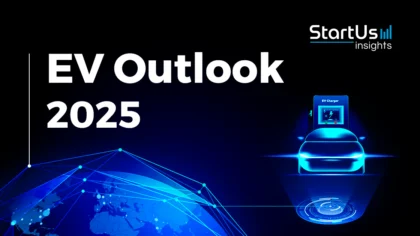Accelerate Productivity in 2025
Reignite Growth Despite the Global Slowdown
Key Takeaways
Here are some key takeaways on how blockchain impacts the automotive industry:
- Vehicle Recall Optimization – Every vehicle part is tied to a unique VIN number which makes issuing a recall less complicated — only specific vehicles with faulty installed components will get recalled.
- Loyalty-Based Tokens – All information regarding loyalty transactions is stored on a shared ledger which allows to create and distribute highly personalized marketing materials to a given customer.
- Ownership Transfer – Provides maximum transparency and speed in the process of change of ownership.
- Vehicle Insurance – Automates the process of submitting an insurance claim while also storing real-time mileage information, driver behavior data, and more.
- Identification & Tracking – Dampens losses caused by counterfeit car components through RFID tags on original vehicle parts – making it easy and reliable to verify the authenticity of a given component.
Heat Map: Blockchain Startups Disrupting The Automotive Industry
Our team has created the Heat Map below to highlight the hotspots of blockchain startups disrupting the automotive industry on a global level:

10 Blockchain Startups Disrupting The Automotive Industry
- Amo: A blockchain platform connecting cars, people and service providers through an integrated database. With just a click, users can monetize their weekend drives or other trips.
- Autoblock: Gives users a new way to buy and sell cars via its ecosystem built on the blockchain.
- Axt: A single solution for dealers and lenders through which a more robust vehicle history report is created and being offered to consumers at a fraction of the cost.
- BigChainDB – Develops an ownership transfer service called CarPass in an effort to centralize all information about a vehicle to fight fraud. The pass includes title, service providers, prior damage, maintenance, and inspection history.
- carVertical – A startup working on a blockchain-based solution solving the problem of nonexisting transparency about car usage histories.
- DAV – Develops a blockchain-based transportation protocol enabling a decentralized, peer-to-peer transportation network.
- GEM – Creates a personalized experience where customers are charged based not only on distance but driving behavior, time of day, geolocation, and additional data points.
- Loyyal – Leverages blockchain and smart contract technology to provide loyalty and rewards network infrastructure solutions.
- One Car Payment – Develops a blockchain driven algorithm that helps consumers save money on the long-term costs of owning a vehicle by providing a payment service that combines all vehicle payments into one single monthly fee.
- VLB – Provides a range of services for producers and distributors of spare parts, insurance companies, as well as fleet management companies. Among these, VLB increases the transparency of spare parts, handles claim management efficiently, and reduces costs for vehicle maintenance and repairs.
The automotive industry is facing a number of challenges: Massive car recalls, relatively low customer loyalty, and the black market for counterfeit spare parts, amongst others.
Blockchain stands to change that. The technology promises more transparency to the industry’s operations by helping car manufacturers and their partners forge long-lasting and trustful relationships with customers. Moreover, it eases the process of vehicle insurance and aids in verifying original equipment and car components in a bid to cut OEM’s losses.
Automotive companies are adopting blockchain in the process of the industry’s digital transformation efforts, with the automotive blockchain market expected to grow to $1.6 billion by 2026.
Innovation Map: How Blockchain Startups Transform The Automotive Sector
Our team of innovation analyst scouted more than 250 blockchain startups transforming the automotive industry and identified the most promising innovation trends in the sector.
Below, you’ll find the Innovation Map highlighting the most promising application areas as well as a deep dive in each of the sections.

Vehicle Recall Optimization
Recalling vehicles is an important and complex process that takes a heavy toll on a manufacturer, both financially and logistically. On top of that, it weakens the brand image. In 2016, the United States has seen nearly 53 million cars being recalled due to various issues that could put the vehicle owners at risk on or off the road.
Blockchain radically improves this process, saving the manufacturer lots of money and making it easier for the customer.
A decentralized ledger provides the transparency vehicle manufacturers need to store data on every detail of their products. As every part is additionally tied to a vehicle’s unique VIN number, tracking these parts becomes much more efficient. Overall, the process of recalling vehicles becomes significantly less complicated as only specific vehicles with faulty components will be recalled.
Going a step further, each time a vehicle owner needs to exchange parts, the replacement of these parts is recorded on the blockchain to keep the information up to date and allow for easier recalls later on.
Loyalty-Based Tokens
Current loyalty programs are inefficient and outdated. The loyalty points earned often end up not being used thus lowering the value of a company’s loyalty program.
By storing and handling the information regarding loyalty transactions on a shared ledger, any action that triggers loyalty points conversions are recorded on the blockchain and can then be distributed across the network of the program’s partners.
Furthermore, as self-driving vehicles gain traction, car owners will spend less time actually driving and more time doing other things in their vehicles. This opens up the possibility to grab customers’ attention with relevant promotion or advertisements.
That being said, the information of loyalty programs can be used to create and distribute highly personalized marketing materials to a given customer.
Ownership Transfer
The ability to transfer a vehicle’s ownership from one individual/company to another, and for a stakeholder to be able to quickly and reliably check all the relevant information with regards to this, has always been a core requirement.
Despite this, transferring ownership of an asset is a complex and inefficient process. Moreover, the majority of these processes are paper-based and often lengthy and corruptible.
Employing blockchain advances this process as the technology is decentralized and treats each member of the network as an equally trusted source of information. It’s also very fast and practically impossible to tamper with.
BigChainDB, together with Volkswagen Financial Services (VWFS) and Innogy, have therefore developed CarPass – a service collecting and storing all relevant vehicle data on a transparent, distributed ledger thus achieving maximum transparency and speed in transferring ownership.
However, the concept goes deeper than just including ownership information. It creates a car’s digital record, which encompasses a car’s prior accidents or damages, its maintenance history, sensor data and much more.
Vehicle Insurance
Blockchain plays an increasingly important role in the automotive as well as the insurance sector as it allows for storing vehicle’s real-time mileage information and collecting and handling data from vehicle sensors regarding the driving style of an insured individual, for example.
Building on top of that, insurance companies can offer dynamic pricing and personalized quotes to individuals, incentivizing customers to drive carefully and save money.
Notably, smart contracts built on blockchain are also capable of easing and automating the process of submitting a vehicle insurance claims by incorporating special clauses for road incidents. These are triggered by analyzing relevant vehicle sensor data that indicate that an accident occurred.
Identification & Tracking
Perhaps one of the most promising use cases of blockchain is the verification of transactions and processes, thanks to its transparent and decentralized nature. Because a blockchain ledger, essentially, represents a copy of all transactions that happened to date, each of them is always up-to-date.
Changing one copy does not automatically change the whole chain, making it more difficult to manipulate data. At the same time, the ledger is public, creating even more barriers for fraudulent activities.
This is where OEMs can massively benefit from as it needs a reliable way to fight the market for unoriginal car parts. To put it into perspective, the European Union estimates that as of February 2018, around 2.2 billion euros are lost each year to counterfeit products by car tire manufacturers alone. Blockchain can significantly lower this number.
Original car parts are tagged with RFID tags, which are then recorded on a shared distributed ledger and updated across the supply chain and the network of official dealers and partners. Data stored on a ledger is essentially tamper-proof — making it easy and reliable to verify the authenticity of a given vehicle component. Ultimately, this rewards the customers as well by giving them a warranty that they get what they paid for.
Conclusion
The automotive industry has long been considered the engine of the world’s technological progress. Yet, the sector is facing a number of challenges with promoting, selling, insuring, and recalling vehicles and their components.
Blockchain technology is already proving it is an answer to the majority of these issues by providing car companies and their partners with a reliable and transparent tool to collect, store, manage, and use the car data in a more efficient manner.
The business landscape is clearly interested in what blockchain has to offer, with industry leaders including BMW, Ford, Renault, and General Motors, forming the Mobility Open Blockchain Initiative to speed up the blockchain adoption in the automotive market.
The automotive industry’s neck-breaking development pace and its social importance make it vital for all stakeholders to stay ahead when it comes to bleeding edge technologies to discern innovators from their competition.







